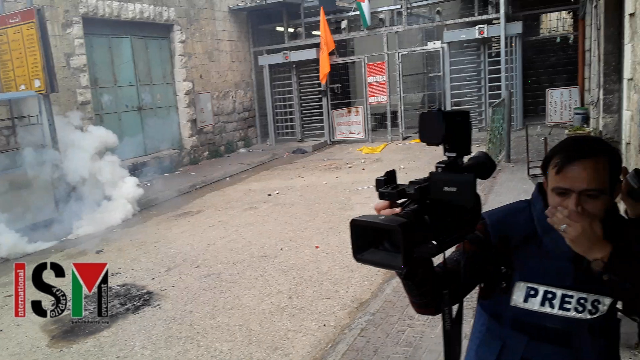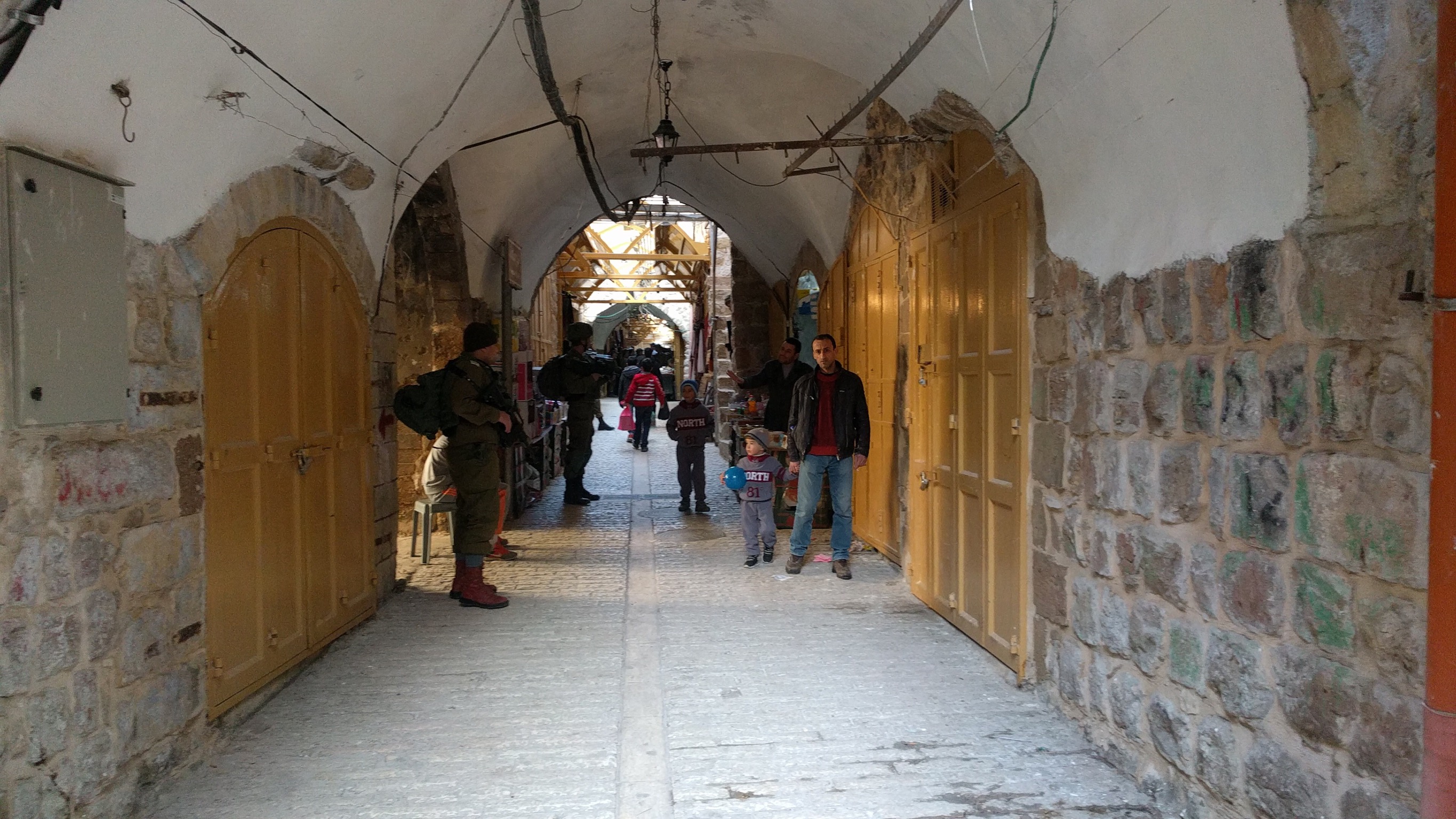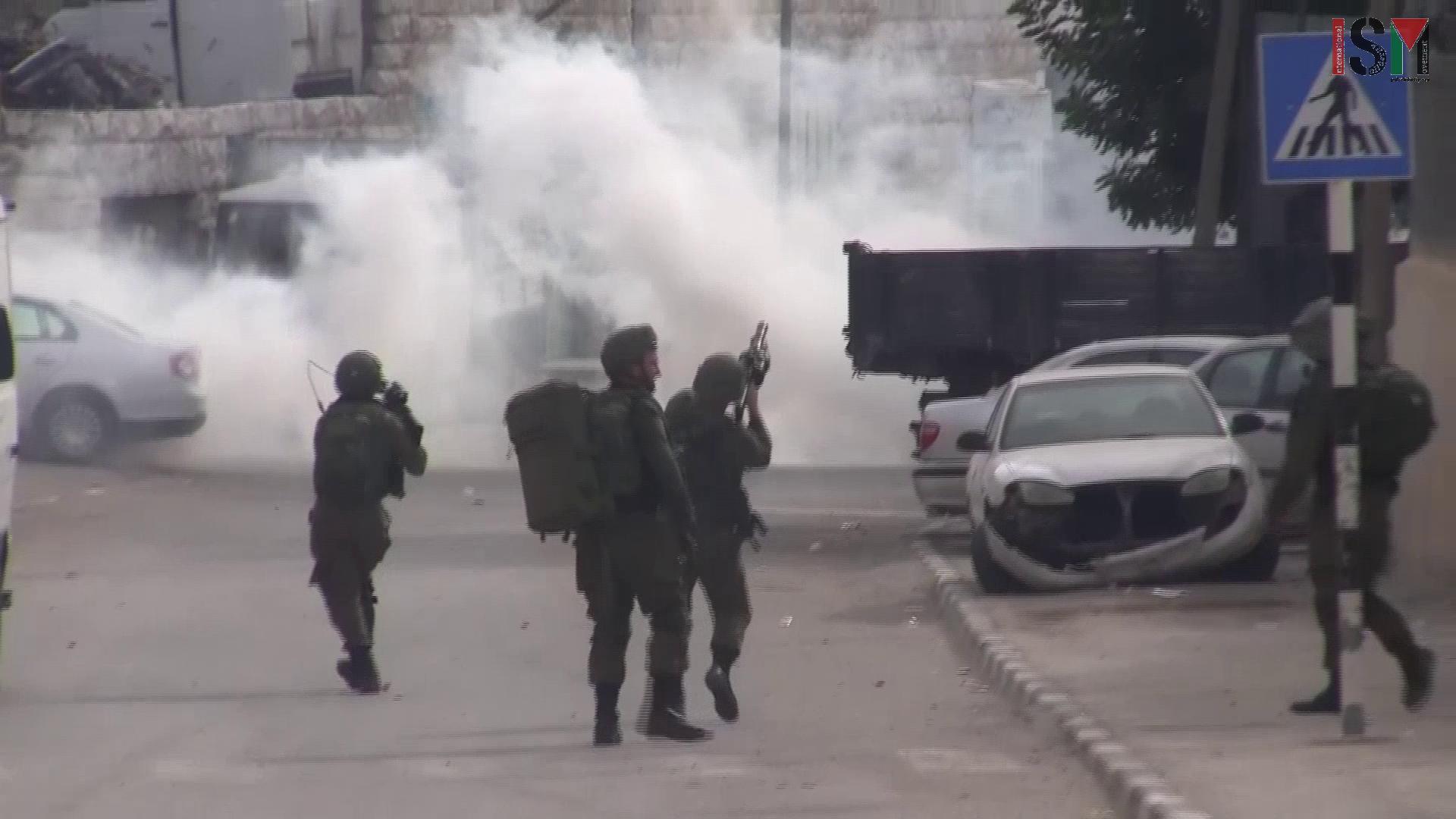Category: Features
-
Hebron: non-violent protestors, press attacked by occupation forces
February 22, 2019 | International Solidarity Movement, Al-Khalil team | Al-Khalil, occupied Palestine This afternoon Israeli occupation forces attacked a non-violent demonstration organised by Palestinian civil society and attended by locals, internationals and Israelis. Protestors demanding an end to the illegal occupation of Al-Khalil were attacked by Israeli soldiers and border police who fired tear…
-
Hebron Schools Gassed
16th December 2018 | International Solidarity Movement, Al-Khalil Team | Hebron, occupied Palestine. At 1pm, 4 Israeli occupation soldiers entered Salaymeh neighbourhood, Hebron. Activists were present from 12:30 pm and did not witness any stones thrown or other provocation. The soldiers fired 21 tear gas rounds in under 5 minutes into the street outside the 3…



